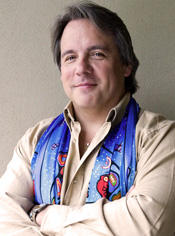Sophocles Quotes - Page 13
The eyes of men love to pluck the blossoms from the faded flowers they turn away.
David Grene, Sophocles (1959). “Sophocles”, [Chicago] : University of Chicago Press
Sophocles (2007). “Dramas of Sophocles”, p.31, Wildside Press LLC
A man who deals in fairness with his own, he can make manifest justice in the state.
Sophocles (2013). “Sophocles I: Antigone, Oedipus the King, Oedipus at Colonus”, p.45, University of Chicago Press
Sophocles (2013). “Sophocles II: Ajax, The Women of Trachis, Electra, Philoctetes, The Trackers”, p.44, University of Chicago Press
Aeschylus, Sophocles, Euripides (1959). “Sophocles”
Sophocles (2013). “Sophocles II: Ajax, The Women of Trachis, Electra, Philoctetes, The Trackers”, p.127, University of Chicago Press
Look how men live, always precariously balanced between good and bad fortune.
David Grene, Sophocles (1959). “Sophocles”, [Chicago] : University of Chicago Press
Sophocles (2012). “Oedipus the King”, p.52, University of Chicago Press
If to some my tale seems foolishness I am content that such could count me fool.
Sophocles (2015). “The Oedipus Trilogy: Oedipus the King, Oedipus at Colonus, Antigone”, p.174, Xist Publishing
Sophocles (2013). “Sophocles II: Ajax, The Women of Trachis, Electra, Philoctetes, The Trackers”, p.38, University of Chicago Press
Desire looks clear from the eyes of a lovely bride: power as strong as the founded world
David Grene, Sophocles (1959). “Sophocles”, [Chicago] : University of Chicago Press
Sophocles (2013). “Sophocles I: Antigone, Oedipus the King, Oedipus at Colonus”, p.217, University of Chicago Press
Aeschylus, Sophocles, Eurípides, Aristophanes, Menander (of Athens.) (1938). “The complete Greek drama: all the extant tragedies of Aeschylus, Sophocles and Euripides, and the comedies of Aristophanes and Menander, in a variety of translations”







